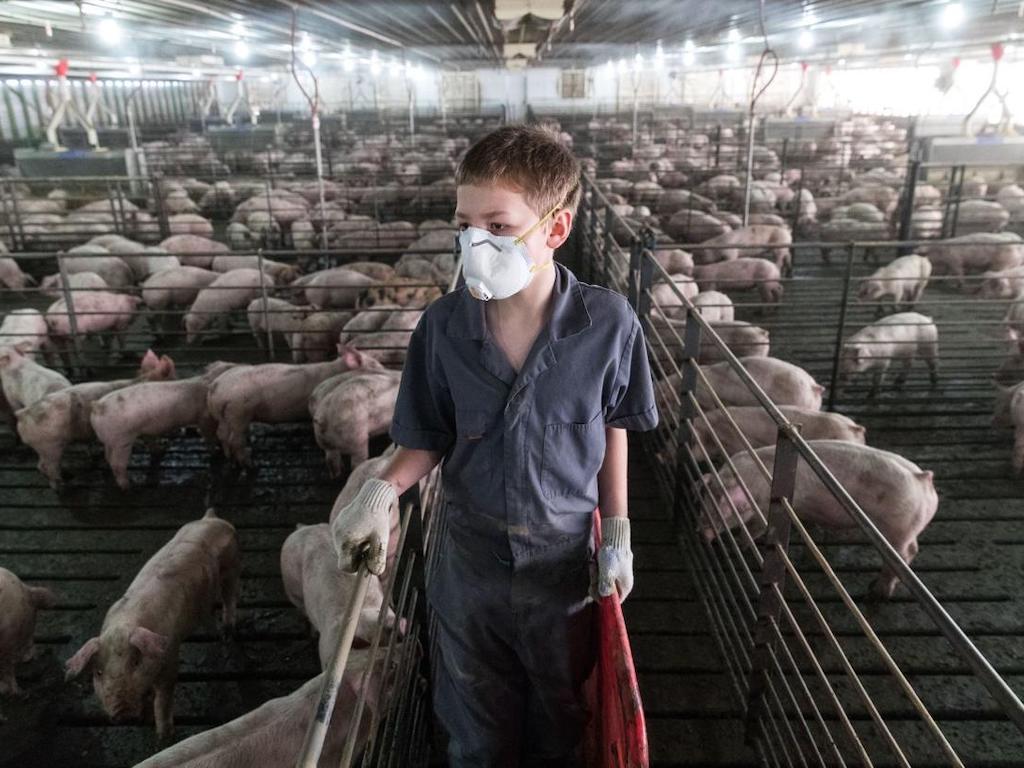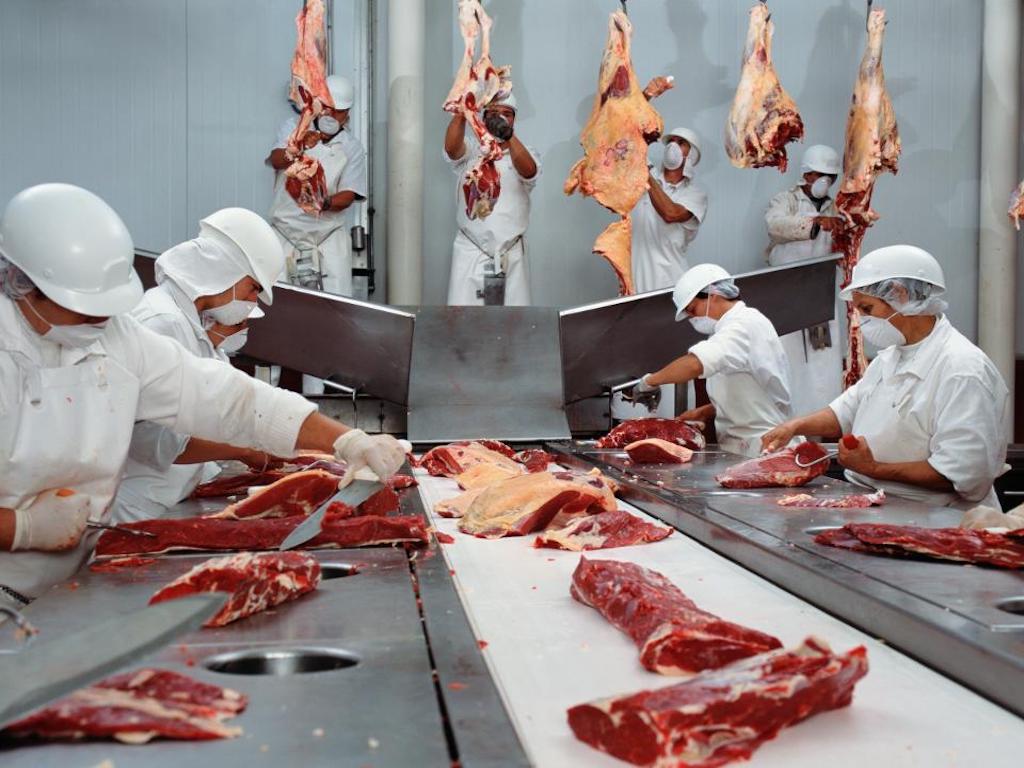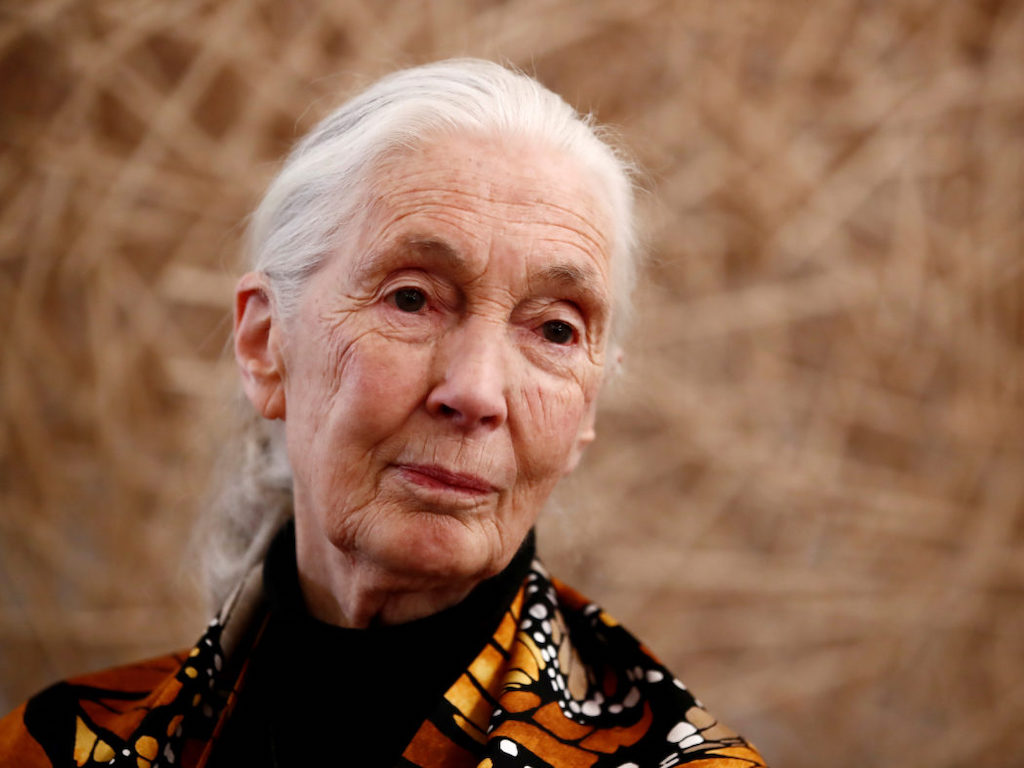3 Mins Read
Jane Goodall, the 85-year-old renowned anthropologist, animal activist and primatologist says that humanity will be “finished” if we do not make dramatic changes to our food systems in response to the climate and coronavirus crisis. Speaking at an online conference hosted by Compassion in World Farming, the prominent naturalist said that the current crisis that we’re in is a result of humanity’s continued destruction of the natural world.
“We have brought this on ourselves because of our absolute disrespect for animals and the environment,” said Goodall. “Our disrespect for wild animals and our disrespect for farmed animals has created this situation where disease can spill over to infect human beings.”
Our overexploitation of the natural world, from deforestation causing biodiversity loss to the wildlife industry and intensive industrial farming, has significantly increased the threat of diseases and climate catastrophes.
“If we do not do things differently, we are finished,” she said. “We can’t go on very much longer like this.”
In order to avoid further breakdown of our planet and human health, Goodall said that first and foremost, humanity must move away from industrial livestock farming and stop destroying wildlife and nature.

Read: Preventing another pandemic – the link between coronavirus and livestock farming
Factory farming has been linked to the rise of antibiotic resistant superbugs, which poses a threat to human health, and slaughterhouses have become hotbeds of viral Covid-19 outbreaks over the past months. The supply chain breakdown as a result of coronavirus has led to millions of animals being culled, often in inhumane ways, despite demand for food banks running high.
A new report by nonprofit FAIRR found that over 70% of the biggest meat, seafood and dairy manufacturers were in danger of fostering future zoonotic disease outbreaks due to lax safety standards, animals crammed in tiny spaces and the overuse of antibiotics.
Goodall was joined by two other prominent European Commission experts at the digital panel. The EU commissioner for health and food safety Stella Kyriakides agreed with Goodall that drastic changes to the food system, particularly relating to factory farming, must be made.
“Intensive farming systems have created an abundance of food but in Europe, at least, there is also significant waste and at times animal suffering,” Kyriakides told the digital conference.
Janusz Wojciechowski, the EU commissioner for agriculture, added that the bloc plans to support sustainable farming practices and new alternative protein innovations in order to counteract intensive industrial farming. These plans were recently outlined in the EU’s two-pronged biodiversity plan as a part of its “Green New Deal”.

Read: Goldman Sachs’ says livestock is the only other commodity “as precarious as oil”
Goodall further added during the conference that global poverty must be tackled. Alarmingly, the United Nations estimates that as many as 34 million people into extreme poverty over the course of this year alone.
Concluding the conversation, the famous primatologist said that we are at a “turning point” and that the crisis has presented a tiny window of opportunity to transform our system before disasters become increasingly frequent. She made similar comments in a video message published earlier in April, where she urged for love and compassion to animals and the planet in order to avoid another pandemic.
“One of the lessons learnt from this crisis is that we must change our ways. Scientists warn that to avoid future crises, we must drastically change our diets and move to plant-rich foods. For the sake of the animals, planet and the health of our children.”
Read our earlier Covid-19 coverage here & more on the climate crisis here.
Lead image courtesy of Reuters / Christian Hartmann.




